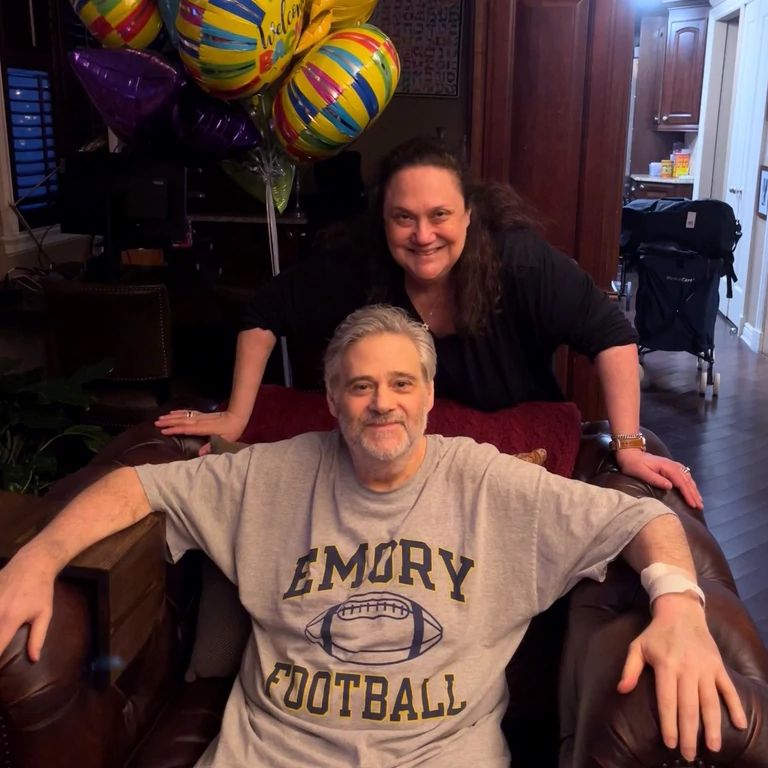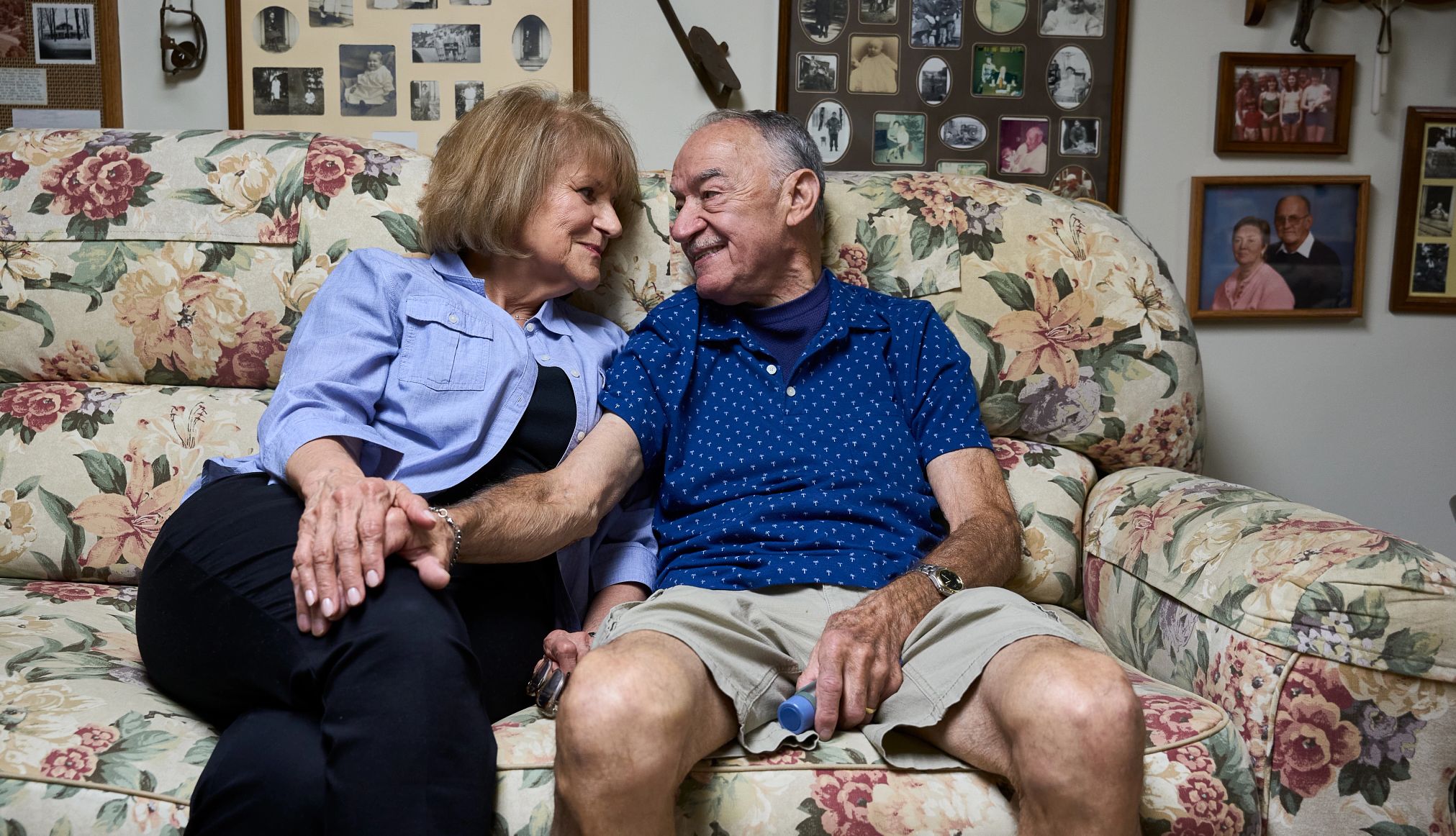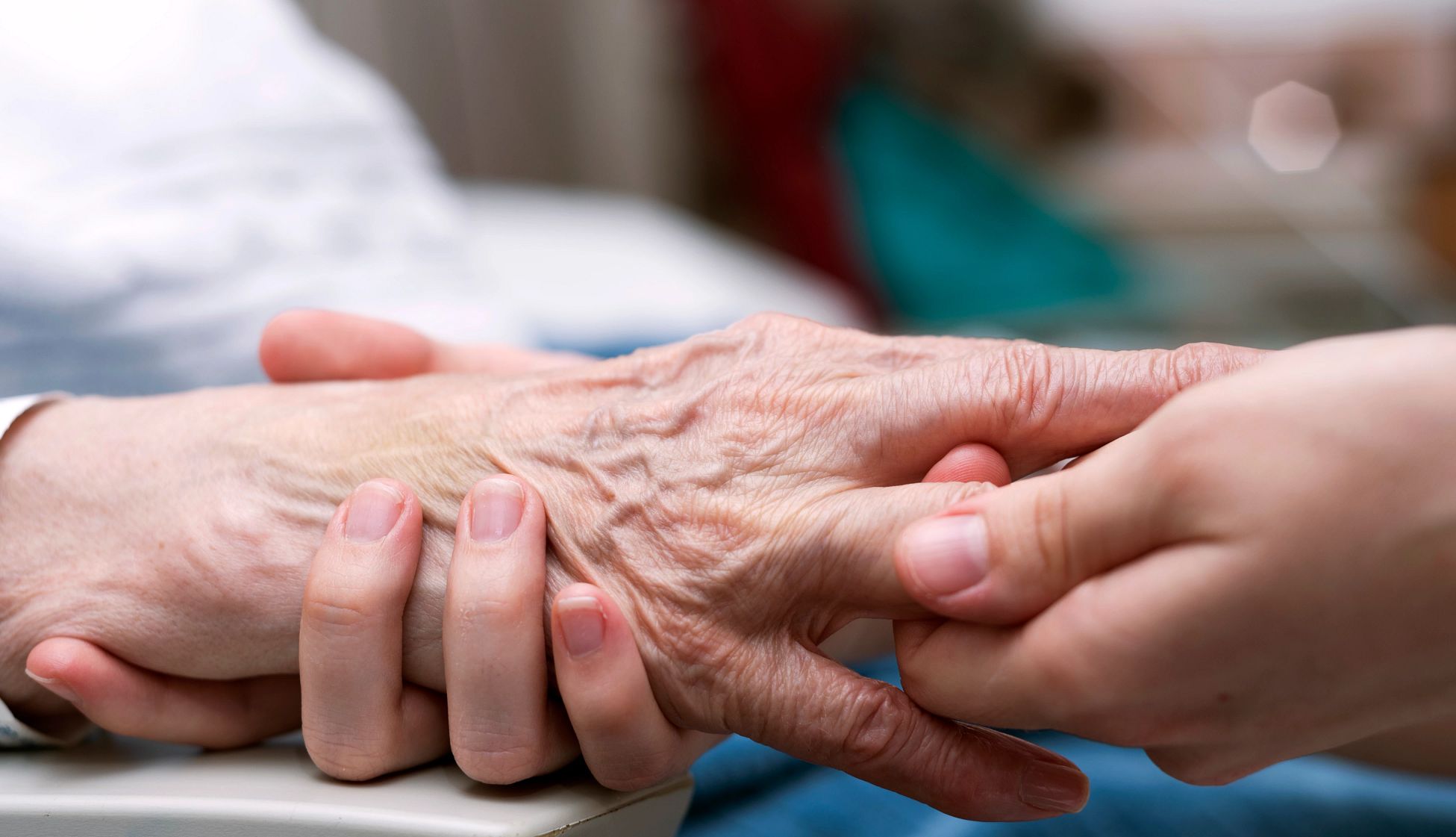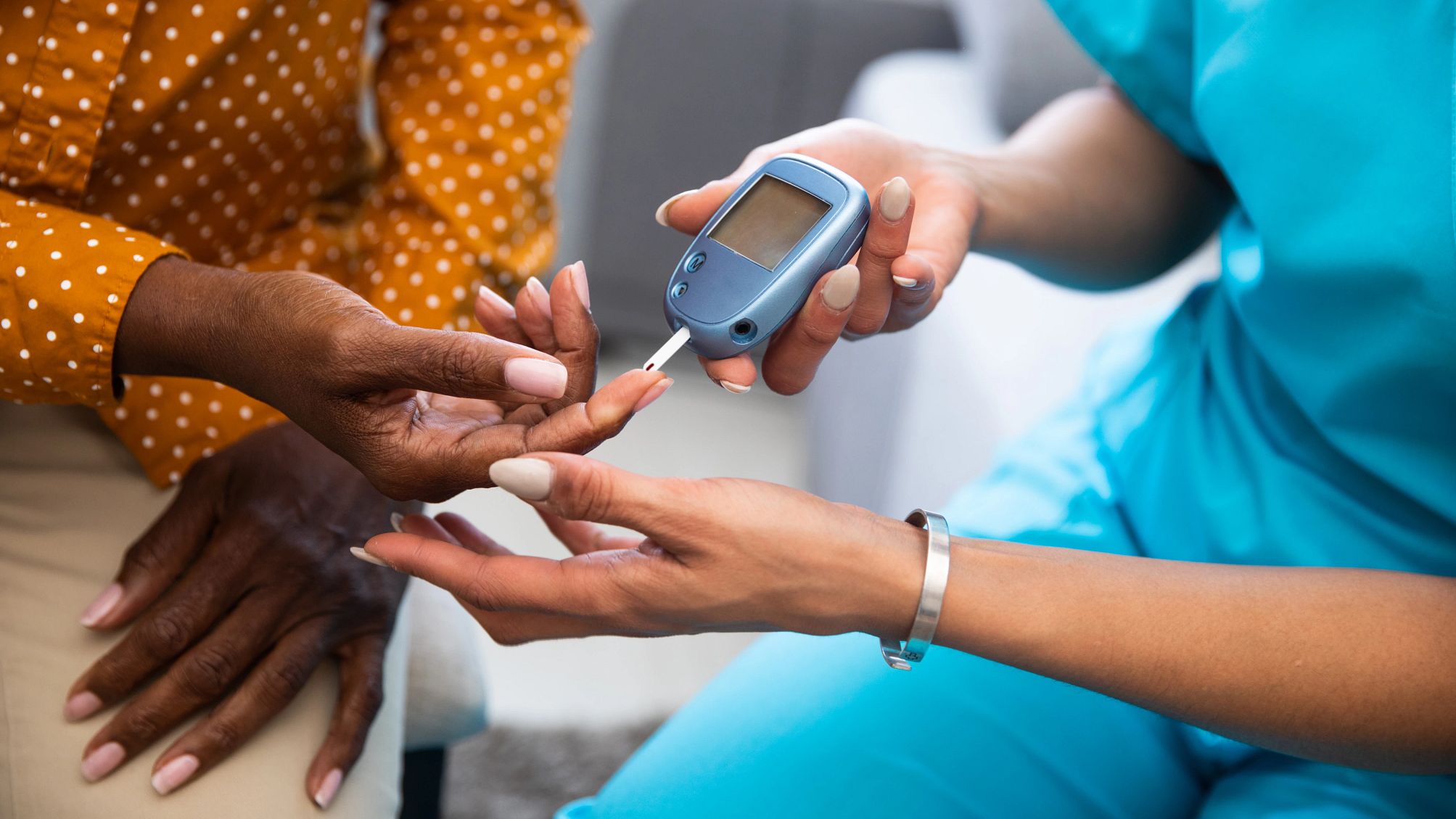AARP Hearing Center


When Ricky Dessen, 61, of New York City, first started experiencing shortness of breath four years ago, he thought his seasonal allergies were acting up. But the usual steroid prescription did not help, and his wife Flo, 60, watched helplessly as his condition worsened. Specialists could not pinpoint a cause.
“He just kept deteriorating and getting weaker,” she says. By February 2023, Ricky needed full-time supplemental oxygen to breathe, and a lung transplant seemed like the only solution.
“That’s when her caregiving really began because she started managing the oxygen deliveries,” says Ricky. Flo was also driving him everywhere and acting as his advocate at medical appointments.
“It was absolutely exhausting,” says Flo. But with the support of their doctors, their children, her sisters and some understanding friends, the couple persevered. Last February, Ricky received a lung transplant and no longer needs oxygen. Flo continues to advocate with his medical team and organizes the medications essential to transplant success.
The Dessens’ transplant experience is not unusual. “Family caregivers play a vital role,” says Yadira Montoya, programs director at the National Alliance for Caregiving. Hospitals require patients to have at least one caregiver lined up ahead of time to qualify for the transplant waiting list. Currently, there are 104,574 people waiting for donor kidneys, livers, hearts, lungs and other organs, two-thirds of whom are aged 50 and older.
If you are caring for someone before and after a transplant, here are five steps experts recommend you take.
1. Learn about the transplant process
It begins with a physician’s referral to a transplant center for an evaluation by a multidisciplinary team of surgeons, medical specialists, a social worker, a pharmacist, a financial counselor and a nurse coordinator, says Gloria Chen, the transplant social work supervisor at Dell Seton Medical Center at the University of Texas, Austin. Some large centers also have psychologists.
At the initial appointment, you both will receive education about the transplant process, says Heather Bruschwein, a clinical psychologist who works with transplant teams at the University of Virginia. Your loved one will then undergo medical tests to determine if they are an appropriate transplant candidate. When Ricky Dessen was evaluated in April 2023, doctors told him he must first lose weight before they would place him on the waiting list.


In addition, both of you will meet with the social worker to determine if you are able to provide the necessary care. For example, a transplant center may require round-the-clock caregiving for one week following a kidney transplant or for as long as three months following a more arduous heart or lung transplant, says Kristin Kuntz, director of transplant psychology at the Ohio State University Wexner Medical Center.
The entire evaluation can take days or months, depending on your schedule and the availability of appointments, says Chen. “Once a patient has finished the evaluation, their case is presented to a selection committee,” she says. Not everyone will immediately, or ever, make it onto the waiting list. The demand for donor organs exceeds the supply, and hospitals want to maximize the chance of success.
Waiting time on the list varies depending on the organ the patient needs, how urgently they need it and even where they live, Chen says. It can range from days to five or more years, according to national data.
For more detailed information, you can turn to a new toolkit for transplant caregivers from the American Society of Transplantation. Chen and Bruschwein led the team that created it.










































































More From AARP
How to Be a Caregiver for Someone With Depression
Your support can help a loved one find help and hopeHow to Be a Caregiver for Someone with Coronary Artery Disease
You can help lower their risk of heart attack and other complicationsHow to Be a Caregiver for Someone With Chronic Kidney Disease
Consistent medical monitoring and a healthy diet can make a big differenceRecommended for You